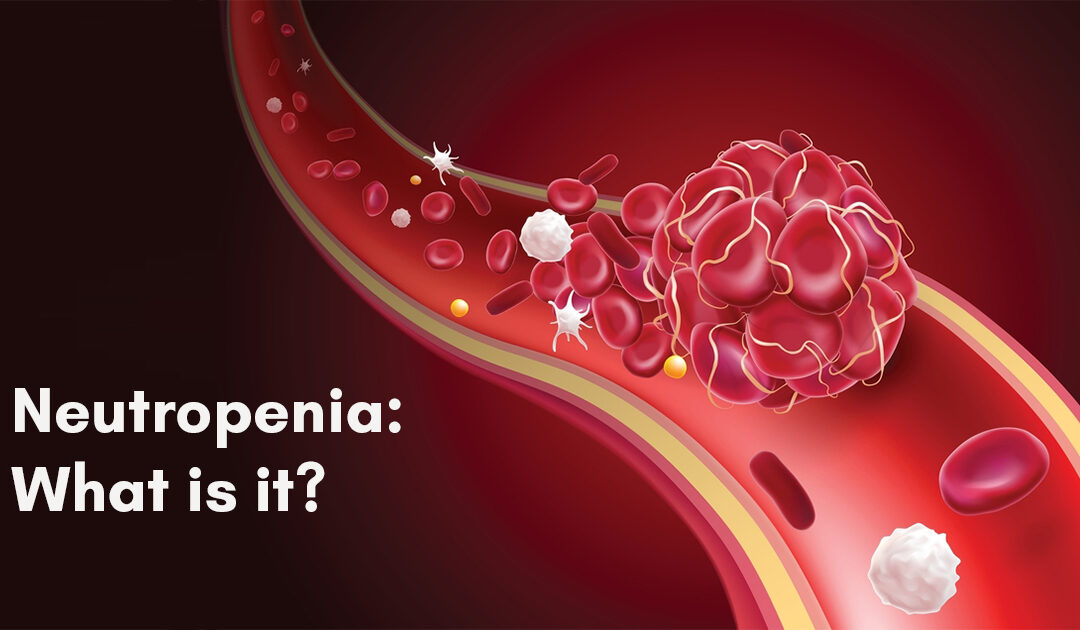Neutropenia is characterized by lower-than-normal neutrophil numbers in your blood. It is especially frequent among patients undergoing cancer therapies such as chemotherapy. Neutrophils have a role in fighting infections. If you have neutropenia, you should take extra care to prevent pathogens that could cause you to become sick.
When you don’t have enough neutrophils, your body struggles to fight germs and avoid infections. Even bacteria that are normally tolerated by a healthy body (such as those found in your mouth and intestines) can cause illness in severe circumstances.
Neutropenia is characterized as mild, moderate, or severe according to the quantity of neutrophils in a blood sample. Many standards define the lowest normal level for adults at 1,500 neutrophils per microliter of blood. The neutrophil counts range from:
- Mild neutropenia: 1,000 to 1,500.
- Moderate neutropenia ranges between 500 to 1,000.
- Severe neutropenia: ≤ 500.
Some causes of Neutropenia:
- Genetic conditions: Genetic disorders that cause neutropenia can be passed down from parents to biological offspring. The three types of inherited neutropenia include benign ethnic neutropenia (BEN), cyclic neutropenia, and severe congenital neutropenia.
- Diseases: Neutropenia may be caused by viral, bacterial, or parasitic infections. HIV, hepatitis, TB, sepsis, and Lyme disease are among the most common causes of infection.
- Cancer: Cancer and other blood as well as bone marrow illnesses, such as leukemia and lymphoma, can prevent the body from producing enough healthy white blood cells, resulting in neutrophilia.
- Nutritional deficiencies: A lack of vitamins or minerals in your diet, such as vitamin B12, folate, or copper, can lead to neutropenia.
- Medications: Cancer treatments such as chemotherapy and radiation therapy can injure or destroy neutrophils, as well as the bone marrow that produces neutrophils, as a side effect. Low neutrophil numbers may also be caused by medications for non-cancer diseases.
- Autoimmune deficiencies: In some autoimmune disorders, your body produces antibodies that destroy healthy neutrophils. Crohn’s disease, lupus, and rheumatoid arthritis are some examples of autoimmune disorders.
What are some Symptoms of Neutropenia?
Neutropenia’s consequences vary according to your neutrophil count. Mild neutropenia may not cause any symptoms. Some symptoms are:
- Fever (febrile neutropenia).
- Fatigue.
- Pharyngitis (a sore throat).
- Swollen lymph nodes.
- Ulcers in your mouth or around the anus.
- Pain, swelling, and redness at the infection site.
- Diarrhea.
- Burning when urinating or other urinary symptoms.
How is Neutropenia diagnosed?
The most common type of blood test is a complete blood count (CBC) with a differential. If you are receiving chemotherapy, your healthcare provider will most likely run this test on a frequent basis to evaluate your neutrophil numbers.
If your doctor is unsure about the cause of your neutropenia, he or she may prescribe additional tests, like, drawing a sample of your bone marrow and analyzing the cells under a microscope. This test can tell your doctor if neutrophils are growing abnormally in your bone marrow or being destroyed after they are created. This information can aid your provider in making a diagnosis.
Neutropenia, or decreased neutrophil numbers, lowers your body’s resistance against infections. While moderate occurrences may show no symptoms, severe neutropenia can cause serious disease. Neutropenia, which can be caused by a variety of conditions including cancer therapy, infections, or vitamin shortages, necessitates immediate medical intervention to avoid problems.

